The Musée de Lyon is located between the Saône and Rhone rivers, with City Hall and the Opera nearby.
Located in the heart of the city, the Musée de Lyon is a museum with so much more to offer than its exterior suggests.
We encourage you to take as much time as possible to view the exhibition at your leisure.
- Musée des Beaux-Arts de Lyon
- History
- Time required
- MAP
- Collections
- Pérugin (Pietro Vannucci, dit il Perugino) 1448-1523
- Véronèse (Paolo Caliari, dit) 1528-1588
- Nicolas Poussin 1594-1665
- Pierre-Paul Rubens 1577-1640
- Antoine Berjon 1754-1843
- Louis Janmot 1814-1892
- Claude Monet 1840-1926
- Paul Gauguin 1848-1903
- Pierre Bonnard 1867-1947
- Francis Bacon 1909-1992
- Edgar Degas 1834-1917
- Auguste Rodin (1840-1917)
- Cafés & restaurants Les Terrasses Saint-Pierre
- Summary
Musée des Beaux-Arts de Lyon
Practical information
Musée des Beaux-Arts de Lyon
Address:20 Place des Terreaux, 69001 Lyon, France
Opening hours: Wednesday-Monday 10:00~18:00 Friday 10:30~18:00
Closed: Tuesdays and public holidays.
Admission
Collections
- Adults: €8
- 18-25 years: €4
- Under 18 years: free
Exhibition
- Adults: €12
- 18-25 years: €7
- Under 18 years: free
History
Before the Revolution, it was used as the Royal Abbey of Saint Pierre.
1801 The Decree of Chaptal comes into force, which provides for the exhibition of collections of paintings in 15 French cities.
1803 The above decree is received and opened to the public.
1834 The museum is extended by the architect R. Dardel (1796-1871).
1875-1900 This period, known as the Golden Age, was marked by the further expansion of the museum and the acquisition of collections.
1914 Natural History Museum is separated.
1921 History about Lyon is transferred to the Gadagne Museum.
1935 The School of Fine Arts is separated.
1990-1998 The last refurbishment takes place.
source:L’histoire du musée
Time required
The museum is considerably larger than its exterior image.
A normal visit would take about one and a half hours.
A thorough tour would take at least two hours.
The museum should be visited with enough time to spare.
MAP
Ground floor
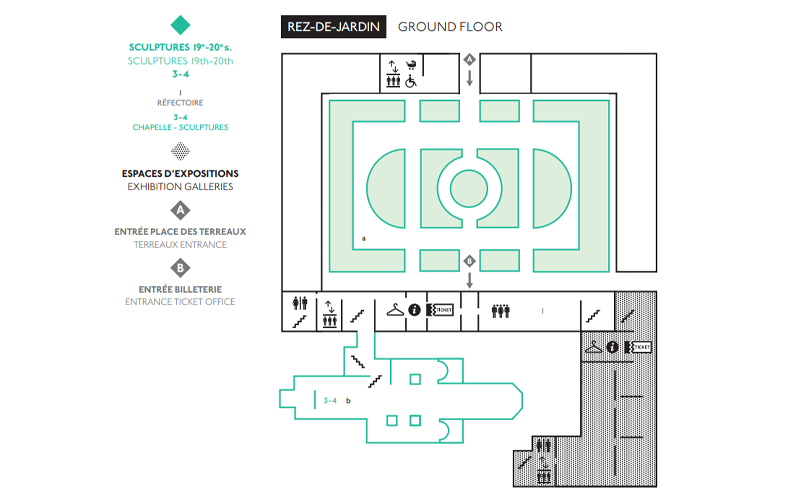
This map shows the ground floor, so enter from ‘A’, go through the courtyard and enter the museum at ‘B’.
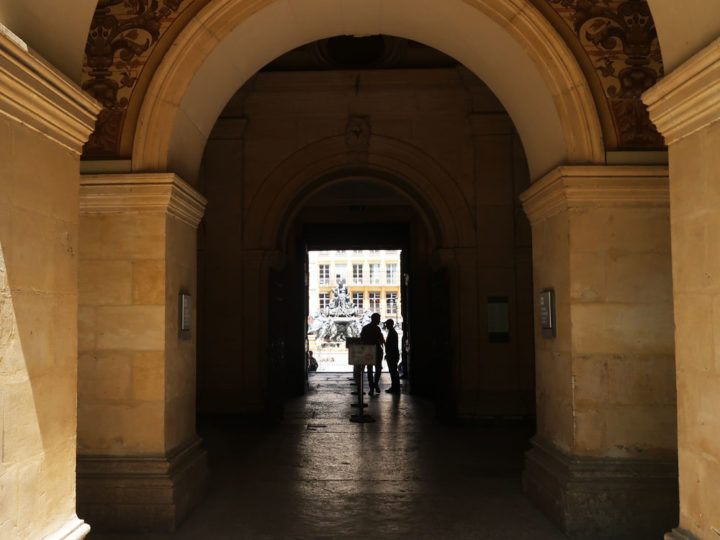
At the back of the photo is the Plaza de la Terreau, where you enter the courtyard once through the security checkpoint.
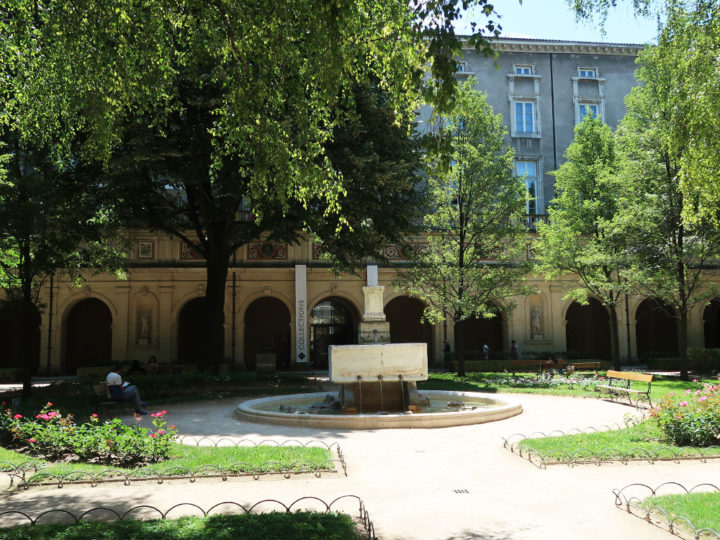
Entry to the courtyard is free.
Benches are also available for resting.
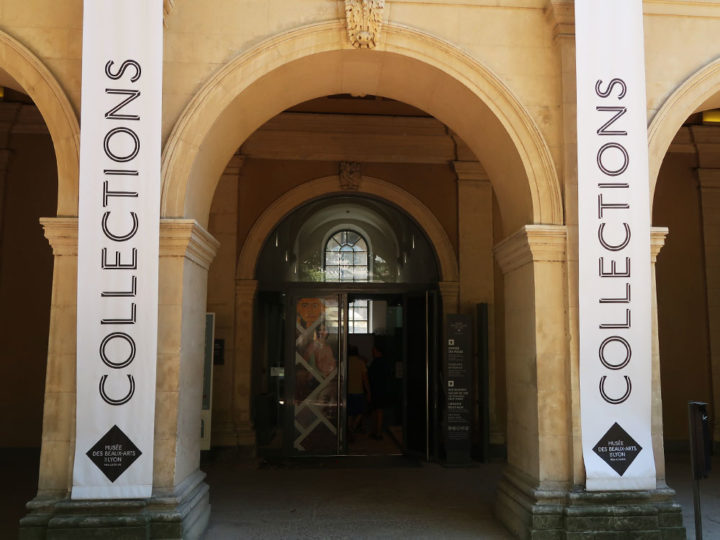
Past the courtyard is the entrance to the museum, which is immediately to the right after entry.
There is a ticket counter here, where you can purchase tickets if you do not have them.
Lockers are available, so please leave any unnecessary luggage in the lockers.
The ground floor mainly displays sculptures.
First floor
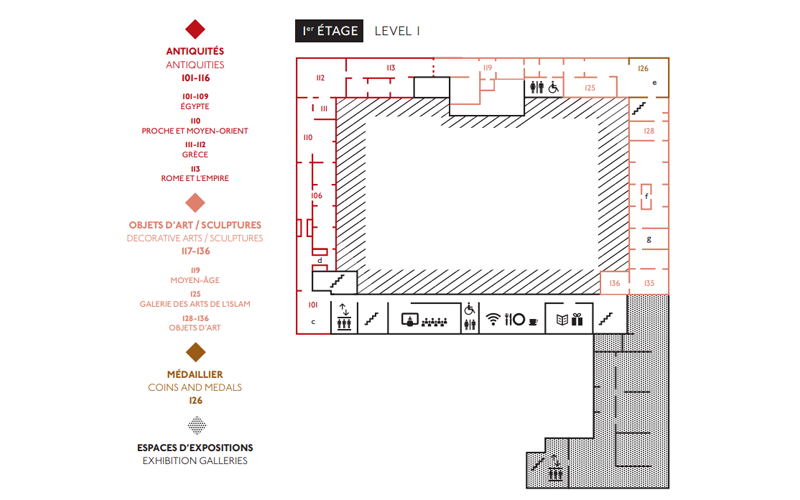
Then head to the first floor above ground level.
Proceed in order, starting at number 101 on the left.
Various objects and other items can be seen, ranging from the Egyptian civilisation to Greek, Roman, Renaissance and modern.
In addition, there is a café and gift shop on this floor.
Second floor
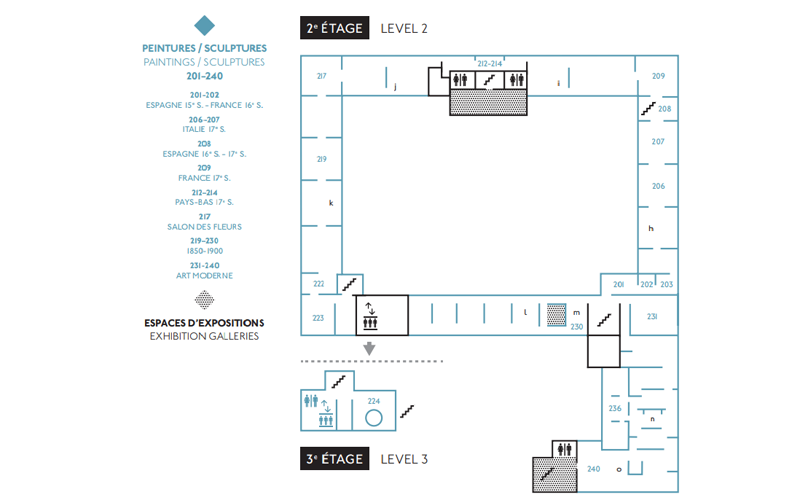
The next level is the second floor above ground.
Proceed in order, starting with number 201 on the right.
On this floor, paintings from the 14th century to the present day are the main focus.
It is also on this floor that works by famous painters you may know are exhibited.
Collections
The following is a selection of representative works from the Musée de Lyon.
Pérugin (Pietro Vannucci, dit il Perugino) 1448-1523
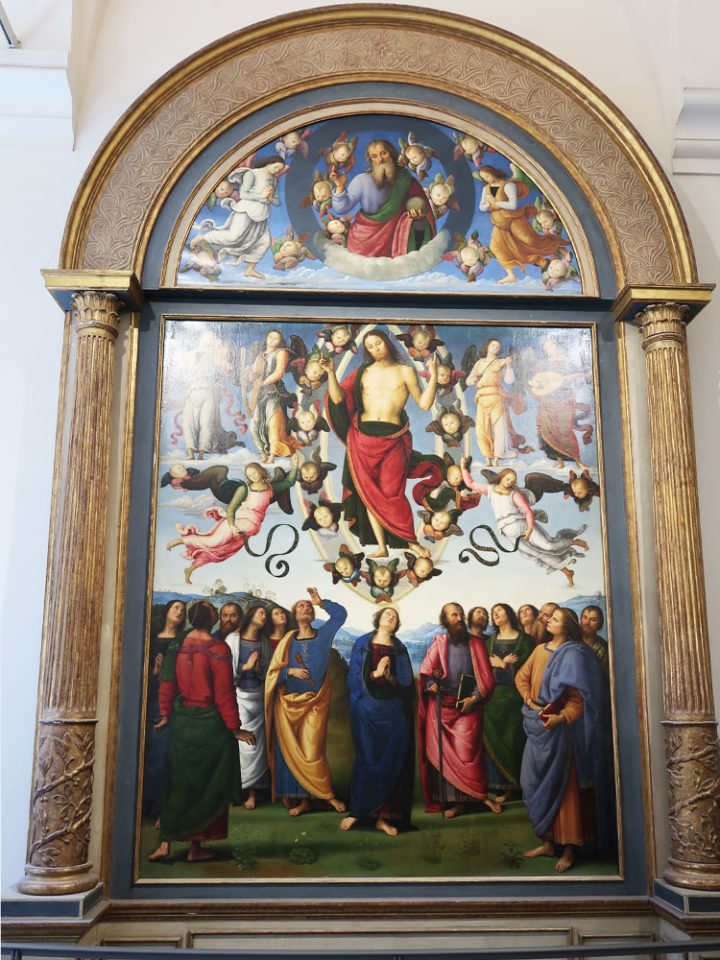
L’Ascension du Christ
It is the work of the Renaissance painter Perugino.
The work is said to have taken three years to complete for the church altarpiece in 1495.
Originally made up of 15 parts, these are the only two surviving pieces.
Véronèse (Paolo Caliari, dit) 1528-1588
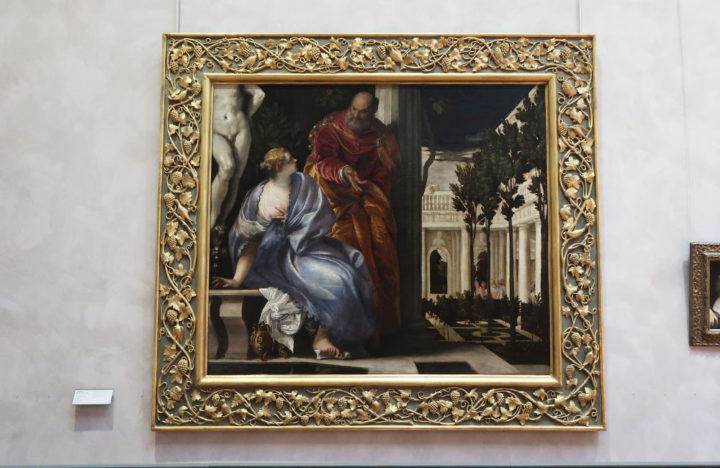
Bethsabée au bain(1575)
He is regarded as one of the most important Venetian painters of the late Renaissance.
Nicolas Poussin 1594-1665
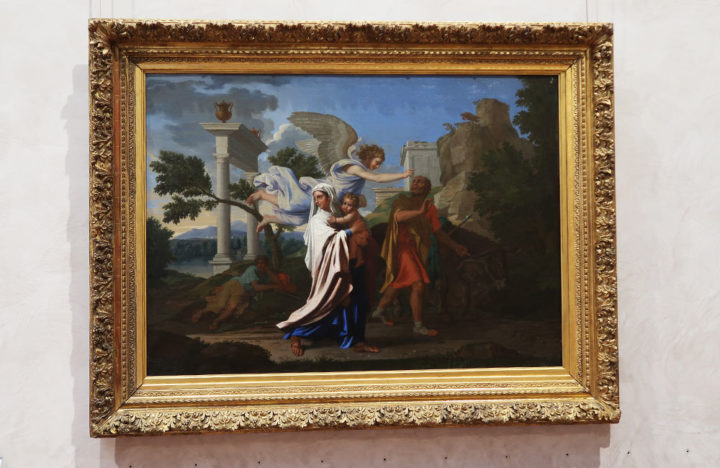
La Fuite en Égypte
The work was designated a national treasure in 2004.
Pierre-Paul Rubens 1577-1640
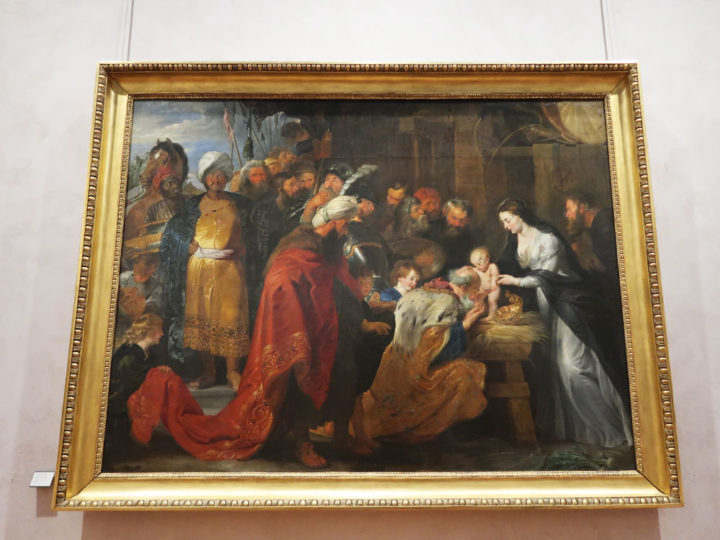
L’Adoration des mages(1617~1618)
Antoine Berjon 1754-1843
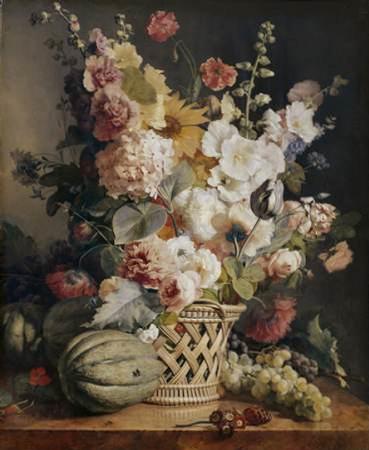
Fruits et fleurs dans une corbeille d’osier (1810)
Beautiful work by Lyon painter Berjon.
Louis Janmot 1814-1892
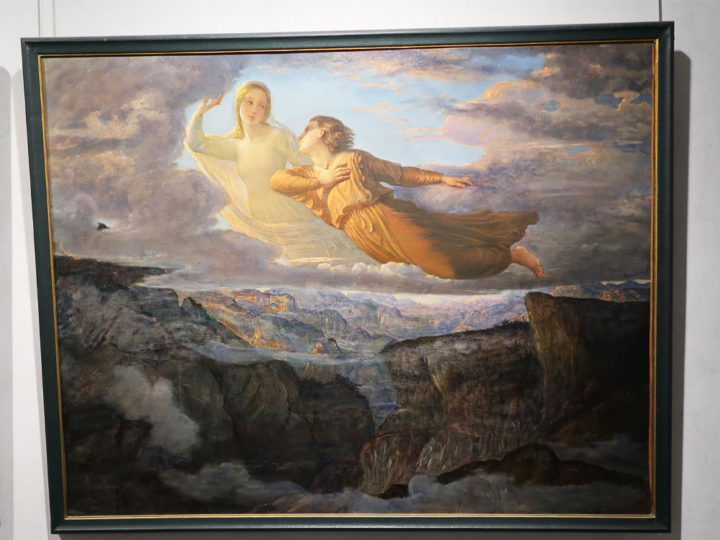
Le Poème de l’âme – L’idéal(1853~1855)
It is the second from the end of a series of 18 works called Poème de l’âme.
This work was the foundation of mysticism.
Claude Monet 1840-1926
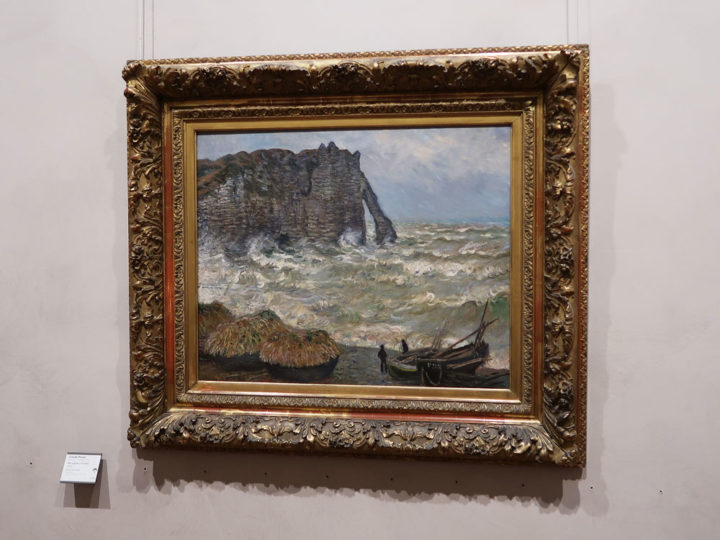
Mer agitée à Étretat(1883)
This is a view of the seafront captured from a hotel window.
Paul Gauguin 1848-1903
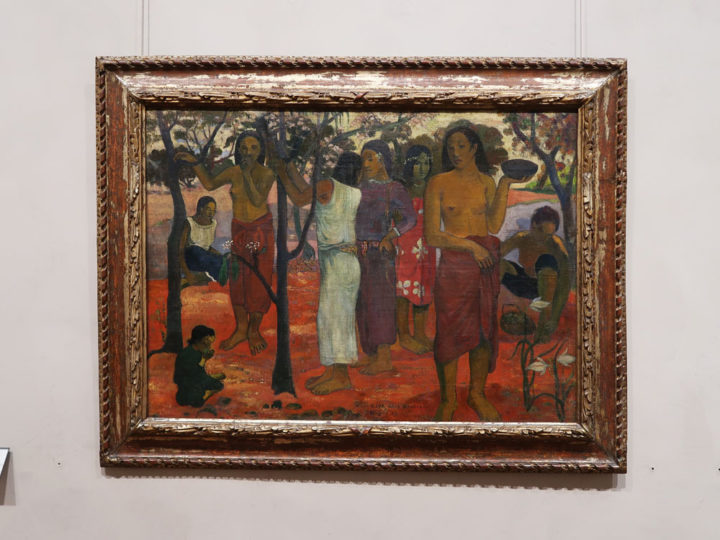
Nave Nave Mahana (1896)
Nave Nave Mahana means ‘Sweet Days’ in Maori.
Pierre Bonnard 1867-1947
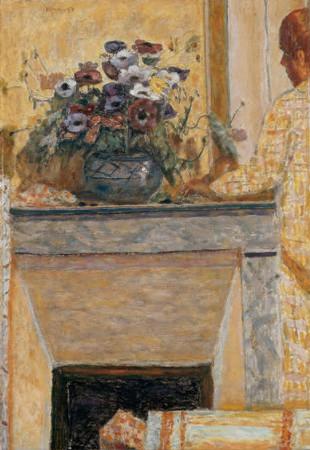
Fleurs sur une cheminée au Cannet (1927)
The work is typical of Bonnard, with its use of contrasts and unique composition.
Francis Bacon 1909-1992
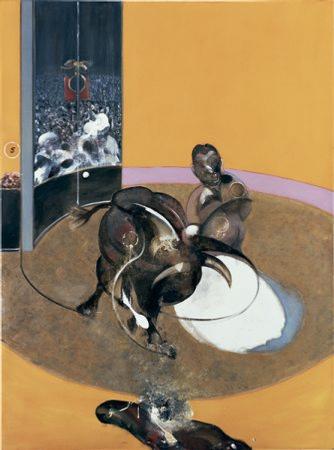
Etude pour une corrida n° 2(1969)
Edgar Degas 1834-1917
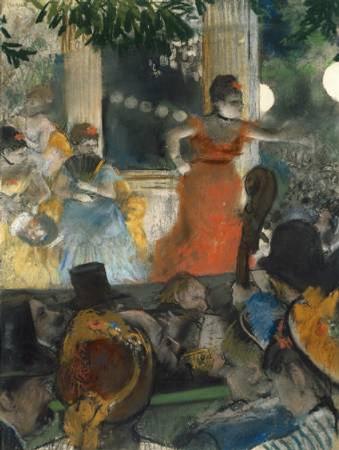
Le Café-concert des Ambassadeurs(1876-77)
One of Degas’s most famous pastel paintings.
Auguste Rodin (1840-1917)
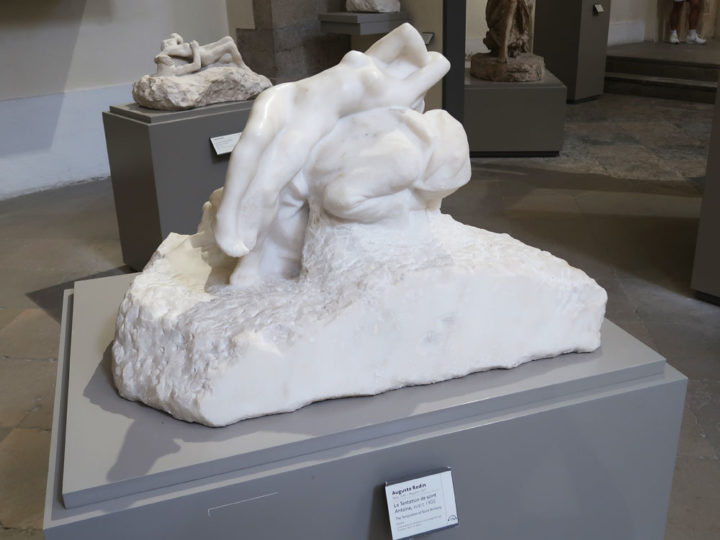
St Antony was said to be obsessed with the fantasies of women who bewitched his mind.
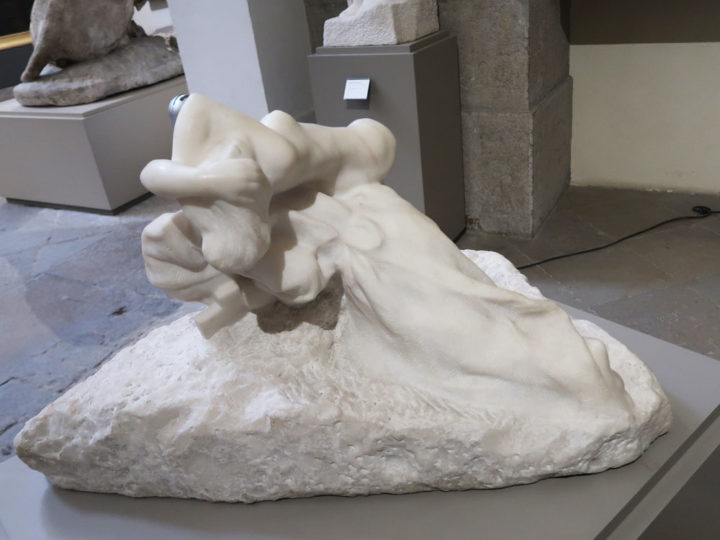
Carved in marble, the beautifully dynamic workmanship is superb.
Cafés & restaurants Les Terrasses Saint-Pierre

On the first floor of the Musée de Lyon, there is a café & restaurant.
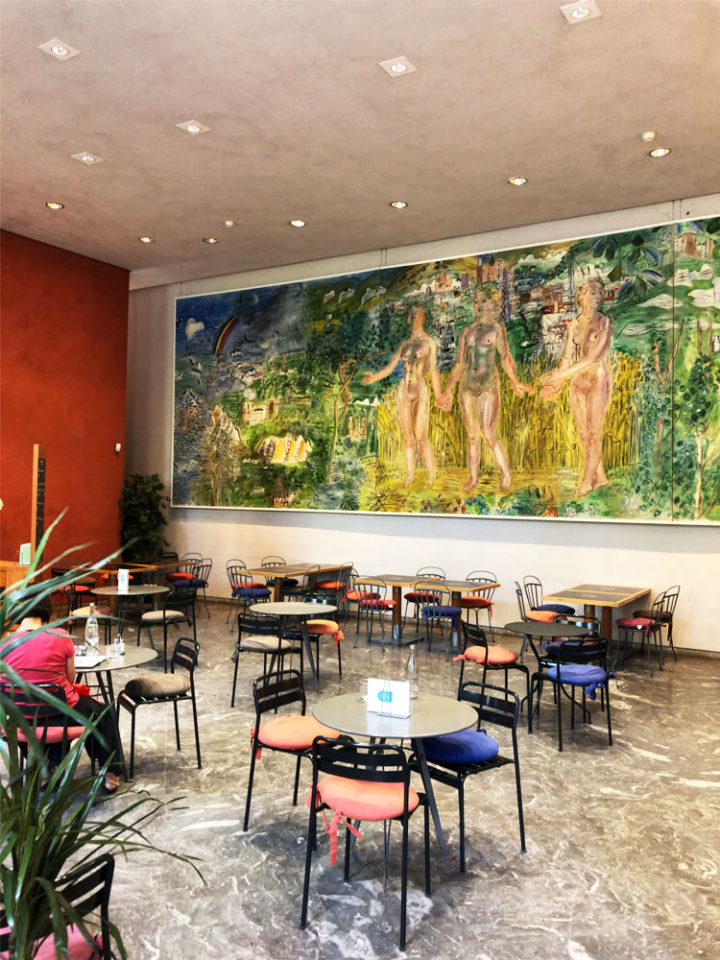
The seating is a bit lonely, but the walls are decorated with paintings by Raoul Dufy.
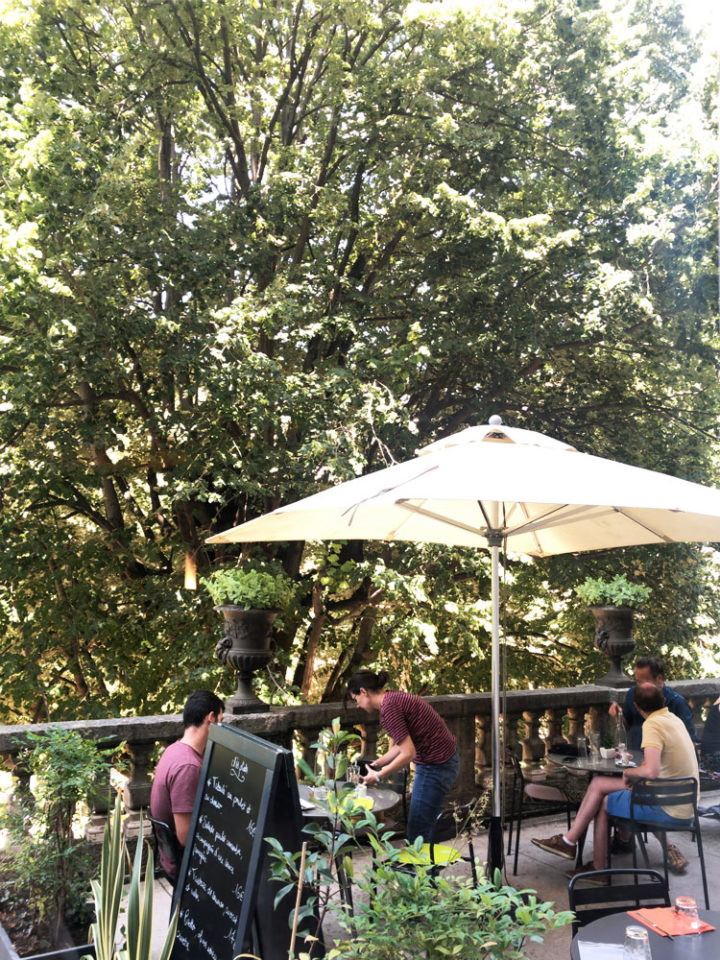
During the summer months, it is possible to dine on the terrace.
Prices range from €9 for entrees to €16 for mains to €6 for desserts.
Opening hours: 10:00~17:30
Closed: Tuesdays, public holidays.
Summary
The first room of sculptures is quite spectacular, followed by works from various periods, from the Egyptian civilisation, through Greece and Rome.
Furthermore, you can see paintings by a number of famous artists on the top floor, which is quite satisfying.
This is a must-visit attraction when visiting Lyon.
You can read more about the collections that we were unable to introduce in this article.
Thank you again for reading to the end of this issue.
For more information on day trips from Paris to Lyon, please click here.

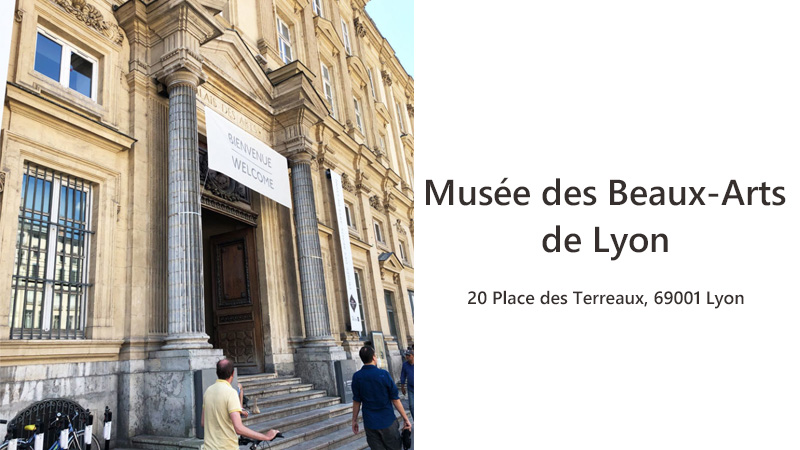
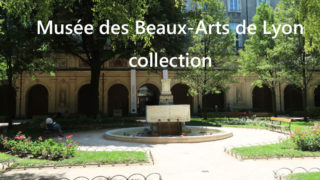
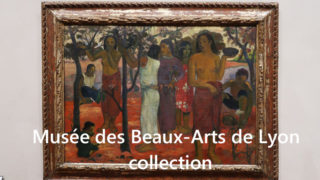
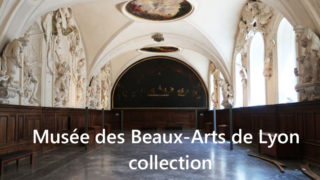



コメント